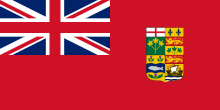
The Ice Hockey World Championships are an annual international men's ice hockey tournament organized by the International Ice Hockey Federation (IIHF). First officially held at the 1920 Summer Olympics. The IIHF was created in 1908 while the European Championships, the precursor to the World Championships, were first held in 1910. The tournament held at the 1920 Summer Olympics is recognized as the first Ice Hockey World Championship. From 1920 to 1968, the Olympic hockey tournament was also considered the World Championship for that year.
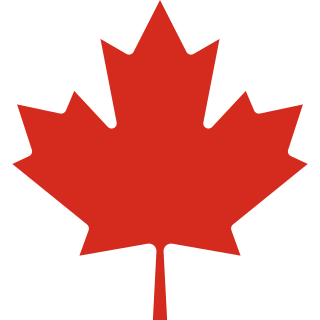
The Canada men's national ice hockey team is the ice hockey team representing Canada internationally. The team is overseen by Hockey Canada, a member of the International Ice Hockey Federation. From 1920 until 1963, Canada's international representation was by senior amateur club teams. Canada's national men's team was founded in 1963 by Father David Bauer as a part of the Canadian Amateur Hockey Association, playing out of the University of British Columbia. The nickname "Team Canada" was first used for the 1972 Summit Series and has been frequently used to refer to both the Canadian national men's and women's teams ever since.

The men's ice hockey tournament at the 1924 Winter Olympics in Chamonix, France, was the second Olympic Championship, also serving as the second World Championships. The competition was held from Monday, January 28, 1924, to Sunday, February 3, 1924. Canada, represented by the Toronto Granites, defended its championship from the 1920 Summer Olympics. The United States and Great Britain took the silver and bronze respectively, while other contenders included Czechoslovakia, France, and Sweden.

The men's ice hockey tournament at the 1928 Winter Olympics in St. Moritz, Switzerland, was the third Olympic Championship, also serving as the third World Championships and the 13th European Championships. Canada, represented by the University of Toronto Graduates, won its third consecutive gold medal. Highest finishing European team Sweden won the silver medal and its third European Championship.

The men's ice hockey tournament at the 1936 Winter Olympics in Garmisch-Partenkirchen, Germany, was the fifth Olympic Championship, also serving as the tenth World Championships and the 21st European Championships.
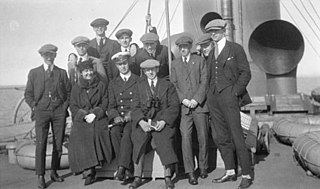
Ice hockey was introduced to the Olympic Games at the 1920 Summer Olympics in Antwerp. The tournament also served as the first World Championships. The matches were played between April 23 and April 29, 1920. Canada, represented by the Winnipeg Falcons, won the gold medal. The silver went to the United States and Czechoslovakia took the bronze.
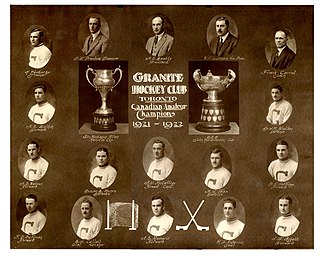
The Toronto Granites were an amateur senior ice hockey team from Toronto, Ontario. The Granites were Allan Cup champions in 1922 and 1923. They were chosen to represent Canada at the 1924 Winter Olympics in Chamonix, France. The Granites won the second consecutive Olympic gold medal for the Canada national men's ice hockey team.

Ice hockey tournaments have been staged at the Olympic Games since 1920. The men's tournament was introduced at the 1920 Summer Olympics and was transferred permanently to the Winter Olympic Games program in 1924, in France. The women's tournament was first held at the 1998 Winter Olympics.

Frederick George "Steamer" Maxwell was a Canadian amateur ice hockey player. He played rover in the days of seven-man hockey at the turn of the 20th century, spending six seasons with the Winnipeg Monarchs of the Manitoba Hockey League (MHL) between 1909 and 1915. Considered one of the top players of his era, he won two Manitoba provincial championships with the Monarchs and was a member of the team that won the 1915 Allan Cup as Canadian senior amateur champions. Maxwell spurned multiple offers to turn professional and ultimately quit playing hockey when he learned some of his peers at the senior amateur level were getting paid.
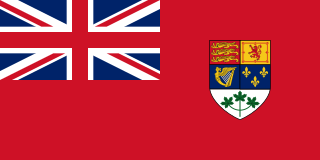
Canada competed at the 1932 Winter Olympics in Lake Placid, United States. Canada has competed at every Winter Olympic Games.

Canada competed at the 1924 Winter Olympics in Chamonix, France. They won one gold medal, in ice hockey.

Canada competed at the 1928 Winter Olympics in St. Moritz, Switzerland. Canada has competed at every Winter Olympic Games.

James John Foster was a Scottish-Canadian ice hockey goaltender. He is best known for his role in leading the Great Britain men's national ice hockey team to its only gold medal, in ice hockey at the 1936 Winter Olympics. He was posthumously inducted into the IIHF Hall of Fame in 2023.
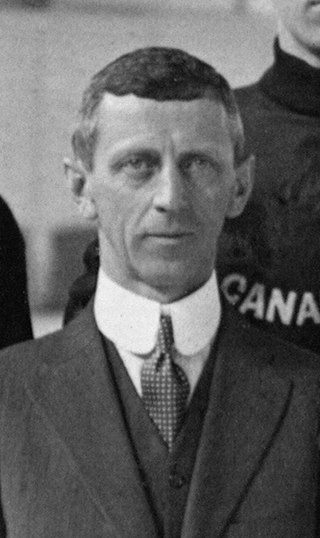
William Abraham Hewitt was a Canadian sports executive and journalist, also widely known as Billy Hewitt. He was secretary of the Ontario Hockey Association (OHA) from 1903 to 1966, and sports editor of the Toronto Daily Star from 1900 to 1931. He promoted the establishment of the Canadian Amateur Hockey Association (CAHA), then served as its secretary-treasurer from 1915 to 1919, registrar from 1921 to 1925, registrar-treasurer from 1925 to 1961, and a trustee of the Allan Cup and Memorial Cup. Hewitt standardized player registrations in Canada, was a committee member to discuss professional-amateur agreements with the National Hockey League, and negotiated working agreements with amateur hockey governing bodies in the United States. He oversaw referees within the OHA, and negotiated common rules of play for amateur and professional leagues as chairman of the CAHA rules committee. After retiring from journalism, he was the managing-director of Maple Leaf Gardens from 1931 to 1948, and chairman of the committee to select the inaugural members of the Hockey Hall of Fame in 1945.

The Winnipeg Falcons were a senior men's amateur ice hockey team based in Winnipeg, Manitoba. The Winnipeg Falcons won the 1920 Allan Cup. That team went on to represent Canada in the 1920 Olympic games held in Antwerp, Belgium. There the Falcons, soundly beating all their opponents, won for Canada the first Olympic gold medal in ice hockey.

The Toronto Varsity Blues men's ice hockey team is an ice hockey team operated by the Varsity Blues athletics program of the University of Toronto. They are members of the Ontario University Athletics conference and compete in U Sports. The Varsity Blues senior team won the Allan Cup in 1921 and 1927, and won the gold medal for Canada at the 1928 Winter Olympics. The team is based at Varsity Arena on the University downtown campus in Toronto, Ontario.
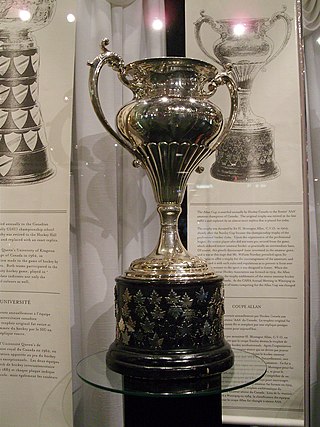
The 1935 Allan Cup was the senior ice hockey championship of the Canadian Amateur Hockey Association (CAHA) for the 1934–35 season. In the best-of-three final, the Halifax Wolverines defeated the Port Arthur Bearcats two games to none.

The 1920 Summer Olympics ice hockey rosters consisted of 60 players on 7 national ice hockey teams. Played at the Olympic Games for the first time, and later regarded by the International Ice Hockey Federation (IIHF) as the first World Championship. Teams were required to be strictly amateur, so players from the Canadian-based National Hockey League (NHL) or other professional leagues were excluded. Canada sent the Winnipeg Falcons, who had won the 1920 Allan Cup, the amateur championship in Canada.

Frederick Paul Henry Marples was a Canadian sports executive in ice hockey and athletics. He was president of the Winnipeg Monarchs team which won Winnipeg Amateur Hockey League championships in 1914 and 1915, and the Allan Cup as senior ice hockey champions of Canada. His operation of a reserve team to support the Monarchs led to debates on player eligibility for the Allan Cup and calls for a national governing body of hockey. As the secretary-treasurer of the Winnipeg Amateur Hockey League, he helped establish both the Manitoba Amateur Hockey Association (MAHA) and the Canadian Amateur Hockey Association (CAHA) in 1914; then served as secretary-treasurer of the MAHA from 1914 to until 1934, and as secretary of the CAHA from 1926 to 1945. He sought to grow the game in rural regions of Manitoba, promote minor ice hockey as a source of future senior players, to keep players in junior ice hockey until age 21, and was against the exodus of amateur players to professional teams.
